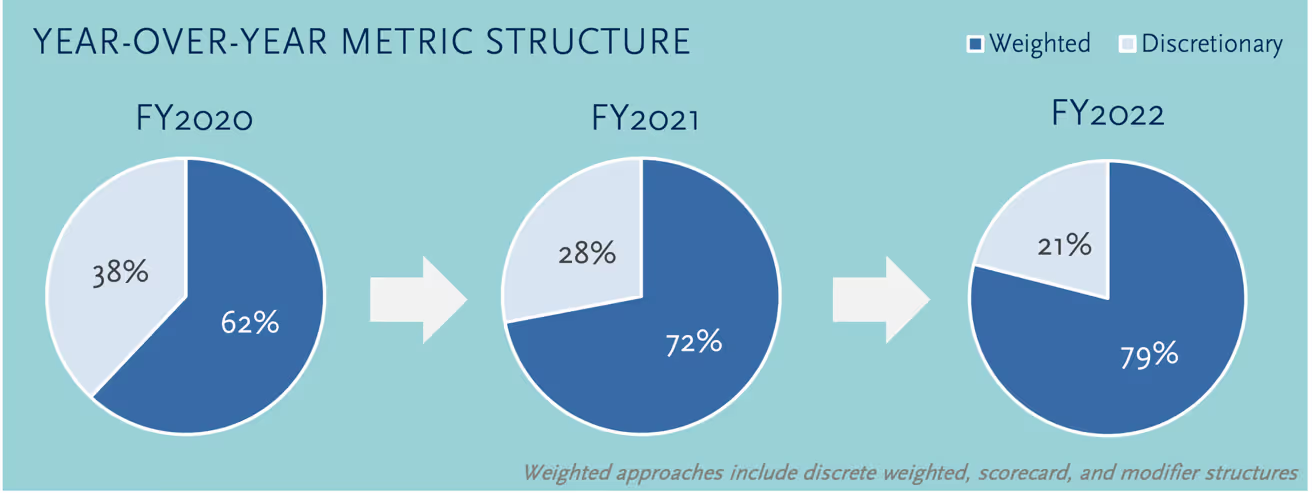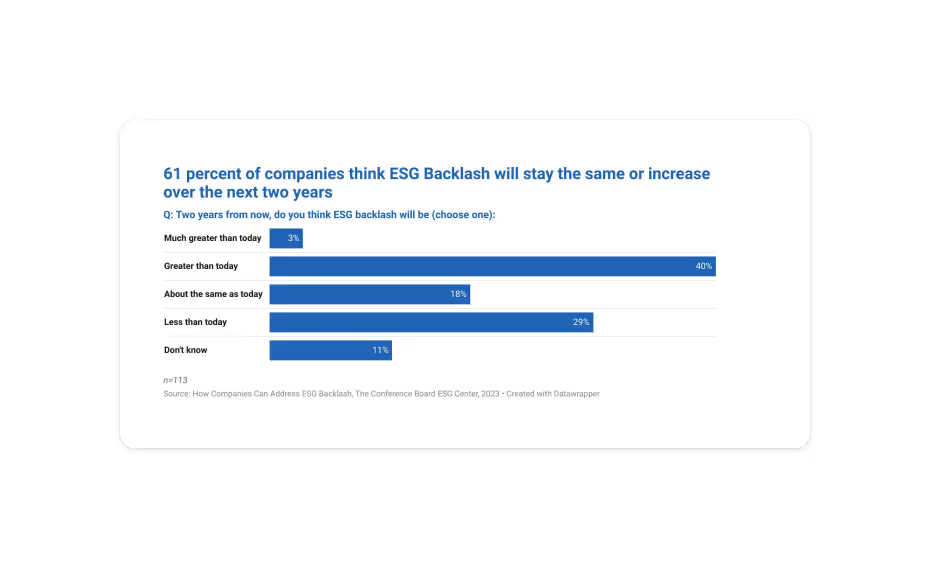The ESG Revolution: Purpose-driven compensation, Backlash and the Role of Technology

Companies have to rethink their compensation strategies. The priorities of Gen Z employees, who are expected to comprise 27% of the global workforce by 2025, are purpose and social responsibility over salary and benefits. Companies recognizing these shifts are rapidly evolving their compensation strategies.
This blog post explores how companies include purpose-driven compensation, the ESG backlash, and the emerging role of HR and technology in strategic compensation packages.
The rise of purpose-driven compensation
A 2023 ESG + Incentives report by Semler Brossy, a leading advisor on executive compensation, highlighted there is a continuous increase in the adoption of ESG in incentives among S&P 500 companies.
72% of these companies applied ESG (Environmental, Social, and Governance) in their incentive plan in 2022. The same report also suggests that Diversity and Inclusion (D&I) was the most prevalent metric, as 55% of these companies used it as an individual ESG metric.

This powerful connection underscores the increasing importance of ESG and D&I initiatives within the compensation framework. Let’s take a moment to discover how companies are relooking at their rewards to make them more relevant to the current times:
1) Including ESG metrics into incentives
Organizations are looking beyond executive compensation and rethinking new avenues to link rewards with ESG. With the growing focus on sustainability and social measures, companies are adding more environmental and social impact metrics to the compensation structure.
According to the same Semler Brossy report, 48% of the companies used environmental metrics in their incentive plans in Financial Year 2022 which is almost 100% growth from the Financial Year 2021.
Here are some ways companies are using ESG metrics in the incentive plan:
Low carbon footprint: Companies are announcing bonuses for employees who are exceeding targets for being more energy efficient, adopting renewable energy, or reducing waste.
More volunteer hours: Organizations like Salesforce offer incentives to their employees in the form of paid time off for seven days per year. They also offer bonuses through matching donations.
High safety: Strong safety records are being linked to bonus plans to create and promote a safer work environment.
It’s also worth noting how companies are implementing ESG in the incentive plans. The report found that 79% of the companies are using weighted structures to assess performance.
The Scorecard approach is the most prevalent structure as 40% of the companies used it to assess performance while maintaining the same fundamental incentive design. This approach is most likely preferred by companies because it allows them to link pay with multiple priorities along with ESG metrics.

Additionally, 98% of companies have included ESG metrics in their Annual Incentive Plan (AIP) and only 2% have included it in their Long-Term Incentive Plan (LTIP). A possible reason for the high disparity is that including in AIP gives more flexibility to companies in setting goals and priorities year after year.
2) Student loan relief:
Many employees find it challenging to make ends meet due to student loan debt. Companies have started offering loan repayment assistance to demonstrate social responsibility and to retain employees from the younger generation.
3) Closing the pay gap:
To create a balance, cover the pay gap, and offer equal career opportunities to underrepresented groups, companies are starting new Diversity, Equity and Inclusion (DEI) initiatives.
The rationale behind these initiatives isn’t only about social justice. This is a strategic move backed by McKinsey and Company research that points out that companies in the top quartile for workforce diversity are 36% more likely to outperform their peers in terms of profitability.
By making employees feel valued and empowered, companies are building a strong foundation to unlock significant business opportunities.
The rise of ESG backlash
The increasing focus on ESG has also sparked political scrutiny, ESG compliance, and investor concerns about greenwashing which essentially means providing misleading information about the ESG practices to lure environmentally conscious customers.
According to a report by the Conference Board, 50% of the large US companies have already faced ESG backlash and 61% expect it to intensify in the next two years. The pushback is mostly coming from the government; however, investors, employees, and media are going to increase the pressure on companies in the coming days.

This is an opportunity for companies to relook at their ESG strategy and establish better communication. Here are the key steps companies can implement:
Realign strategy
As pressure mounts and companies are made answerable for their real intentions to make an environmental and social impact, companies must be proactive.
They need to connect their ESG strategy with the shareholder value. One of the best ways of doing this is going beyond identifying key ESG issues and implementing them in the long-term business strategy.
Data transparency and traceability
Companies must implement robust data collection to fight accusations of greenwashing. This must be supported by reporting systems that will provide a clear picture of their ESG initiatives. This will make it convenient for companies to share the data with relevant stakeholders like investors and third-party organizations.
Scenario planning and risk management
The best way companies can mitigate the risks from ESG is by using advanced analytics tools that can identify these risks early on. Coupling this with scenario planning will help develop potential strategies to address challenges.
The role of HR and technology
HR leaders are entrusted with a critical task – designing and implementing compensation strategies that align with the organization’s overall ESG and D&I goals. This challenging task demands collaboration from different departments to plan metrics and assess performance.
Data-driven insights will be crucial, and technology will be at the forefront of bringing about these changes. Here are some ways technology will empower HR leaders:
Data Analysis and Reporting: Spreadsheets are not the best option for analyzing vast amounts of data. Advanced HR software like Compport is a better choice as it can identify pay gaps and ensure equitable compensation packages are offered across demographics.
Goal tracking: As transparency becomes more important, technology will play a big role in setting and tracking the progress of ESG goals linked to bonuses. It will also simplify the administration of cause-driven benefits like volunteer time tracking and charity donation matching.
Talent acquisition: HR professionals will also need advanced recruitment software that reduces unconscious bias. It will screen resumes and rank candidates based on the weighted scoring system. It will provide insights into the diversity pool at each stage allowing recruiters to be more proactive in removing bias.
Conclusion
As more companies include ESG and DEI initiatives in their compensation strategy, they are more likely to attract today’s workforce. However, companies must be careful as they’re expected to face a backlash if their strategy is weak and only relies on greenwashing.
For HR leaders, technology will play a vital role in bringing transformation in compensation strategies. It will build more transparency and accountability as companies solidify their positions as responsible leaders.
Streamline your purpose-driven compensation strategy with Compport.
Book a Demo today.


%20(49).png)
%20(48).png)
%20(47).avif)
